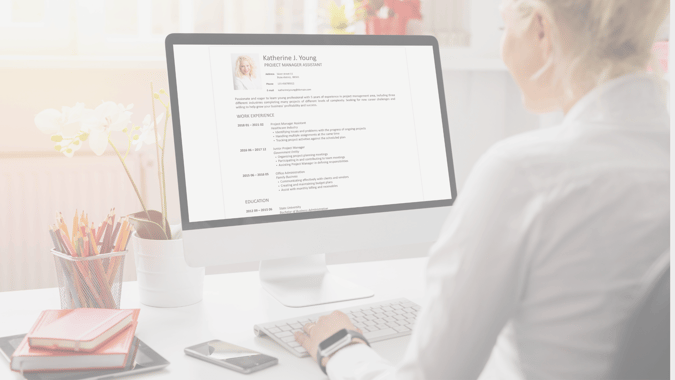
How to write a resume
By: Natalie Rogers

Writing an effective resume is an important part of your job search. It is a tool that should effectively and succinctly sell you as a potential employee on the Australian job market.
Similar to a career plan it will be continually updated, developed, and reviewed. There are many things to consider when writing a resume such as length and format, the balance between skills, achievements, experience and personal passions, your audience, and the type of roles you are applying for. There is no perfect format, although, in our experience, there are a number of fundamental things your resume should cover.
A guide to writing an effective resume
Resume Summary
The first page should include a summary, similar to an executive summary. Assume the reader will only read this part. Make it easy for them to find the most important information and the information that will best convey who you are, what you want and what you can offer (see our article on creating an elevator pitch). You want to capture the reader's attention and encourage them to read on. You want to leave an impression, not only of your skills and experience but of your personality. You need to be creative and demonstrate why you are unique and all on the first page.
Personal details
Clearly displayed on the front page will be name, address, email, and contact phone numbers.
Education
Relevant education including the course, institution, and dates. If you haven't completed a degree, make sure this is clear. Any specific academic achievements are relevant such as distinction average, GPA, and deans list.
Career summary
List in ascending order a summary of your career history including company name, title, and dates.
How far back you go depends on your experience and the relevance of roles at the start of your career to your current role. Generally speaking, the last 10 or 15 years will suffice.
Interests, personal achievements, and memberships
Insert a bit of personality on the first page of your resume. Include your personal achievements and passions, especially if they demonstrate some of the skills you list later on your CV. If you have climbed to the summit of Mount Everest, played a high grade of competitive sport, or are an active member of your local community, it is valuable information. These types of non-professional appointments or achievements can demonstrate leadership, drive, and teamwork.
Relevant technical skills
What you write will depend on the industry you work in. This may be best left for the end of the resume, but if you have specific skills such as SAP or for instance experience in a particular demand planning software, list them upfront. These skills can be vital to a potential employer.
Career history
Here you will clearly list the organisation you work for including core business, customers, size, number of staff, brands etc. You need to sell the organisation and make it easy for the reader to make a connection to the organisation you work for. Never assume people know the organisation.
Define your role and bullet point a list of responsibilities. Include how many people you manage, who you report to, revenue responsibility, and specific customers you are responsible for.
List achievements. Be specific with growth or KPIs. Use percentages and dollar figures and if it is appropriate, include numbers in your resume that define any success you have had.
Tips for writing an effective resume
- Choosing a clear font such as Calibri with size 11 is appropriate.
- Use bold to highlight keywords. Many recruiters or hiring managers will scan resumes and look for 'hooks' or keywords that meet their needs.
- Don't pad the resume out with unnecessary words or jargon. Be clear and concise and to the point. Your aim should be to make it as easy as possible for the reader to find the key information they need to make a decision to call you.
- You don't need to list referees. Making a comment that on request you will provide these is fine.
- You don't need to list your reasons for leaving each role. Leave this to explain at the interview. However, if there is a large gap in your resume, where you may have been travelling or on maternity leave, provide a reason.
- If writing a cover letter, make sure it is tailored to the role. A cover letter can draw out specifics of your experience related to the role that may not be on your resume.
- You may need to tailor your resume for different roles you are applying for. This will typically be in the responsibilities and achievements section, giving weight to certain achievements over others.
- Don't fabricate the truth. If you haven't finished your degree; make it clear.
- Be clear on dates.
- Know what is on your resume! Be clear on the examples and draw specifics from your resume.
RELATED: Resume tips and tricks from recruiters
Download our job-winning resume template, designed by recruitment experts.
Related


Stay ahead of the EOY crunch with contracting
Even though December comes around the same time every year, somehow it still manages to hit us with...
.jpg?width=352&name=FMCG%20Sales%20-%20Blog%20(3).jpg)
FMCG Sales: 2025 Trends & Hiring Challenges
In a market defined by consolidation, and caution, FMCG Sales leaders are facing increased pressure...

 Accessibility
Accessibility
